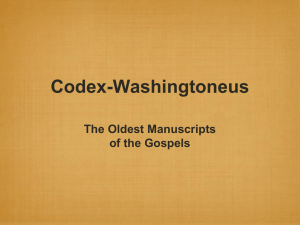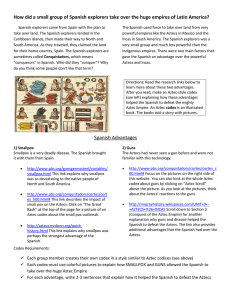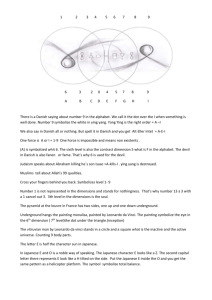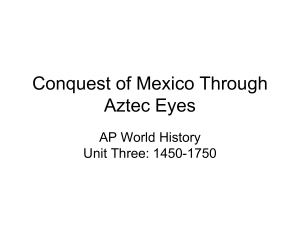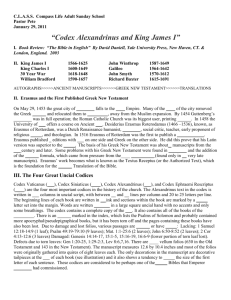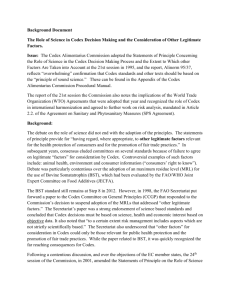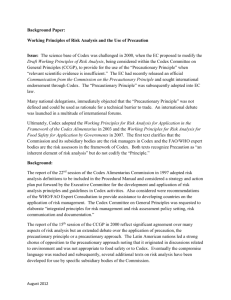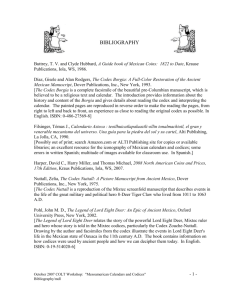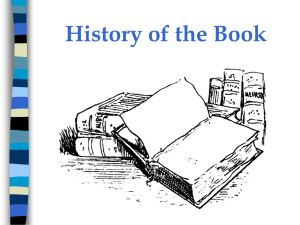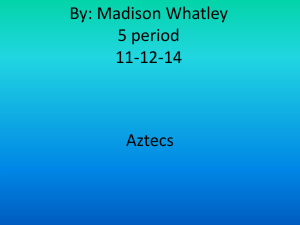Aztec Codices - Venice High School
advertisement
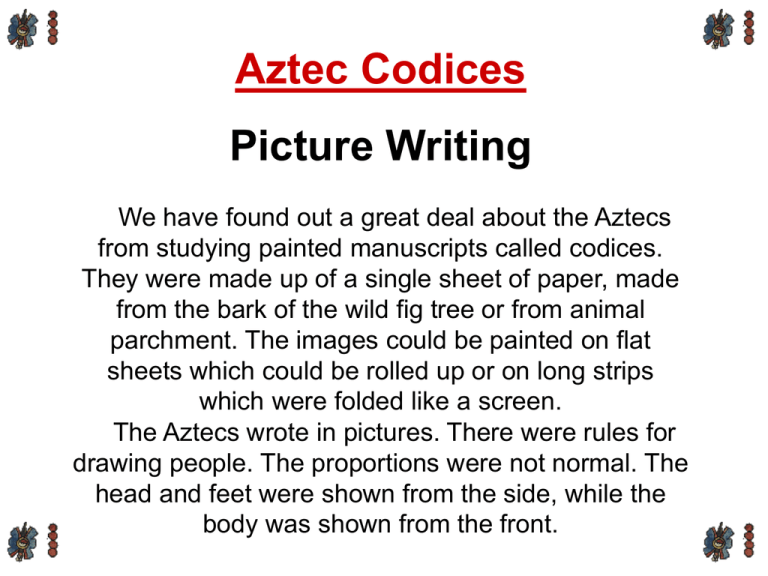
Aztec Codices Picture Writing We have found out a great deal about the Aztecs from studying painted manuscripts called codices. They were made up of a single sheet of paper, made from the bark of the wild fig tree or from animal parchment. The images could be painted on flat sheets which could be rolled up or on long strips which were folded like a screen. The Aztecs wrote in pictures. There were rules for drawing people. The proportions were not normal. The head and feet were shown from the side, while the body was shown from the front. Codex Borbonicus A scene from the Codex Borbonicus, which shows the gods Tlachitonátiuh and Xolotl, while on the right are the 8 to 13 days of the sixteenth series of the ritual series. An excerpt from a scene depicting the 11th "week" of 13 days and nights ruled by the deity Patecatl, who was associated with pulque, a fermented maguey beverage. Florentine Codex Page I, F, 6r. Human sacrifice Page I, S, F. Yacatecuhtli, god of the pochtecas Page III, F, 3v Warfare Page III, F, 3v, depicts the birth of Huitzilopochtli Page VIII, F, 4f. Moctezuma II Page III, F, 34r. Warfare Page IX, S, F. Pochtecas Page IX, F, 5v Page IX, F, 6r. Pochtecas Page IX, F, 18v Page X, F, 15r. Warfare Page X, F, 25v. Codex Mendoza Spies and warriors Founding Tenochtitlan Tribute Tribute Raising children within the family Priest performing ritual Codex Borbonicus was written by the Aztecs prior to the arrival of the Spanish explorers. Codex Florentino and Codex Mendoza were written by the Aztecs after the arrival of the Spanish explorers. Looking carefully at them, you will notice commentary written in Spanish by the Spanish priest who came on the expedition.
